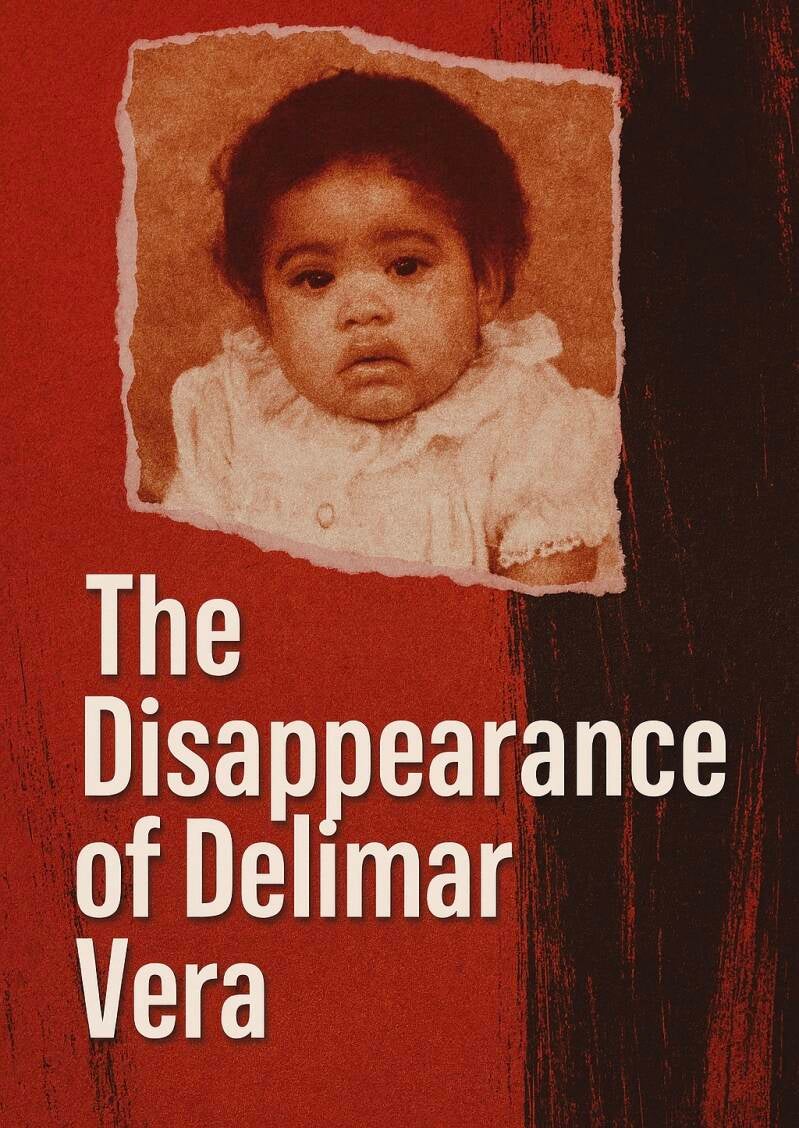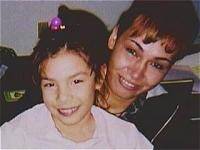
Smoke filled the air, thick and greedy, curling through the walls of a North Philadelphia rowhouse on a cold December night in 1997. Neighbors shouted, sirens wailed, and a young mother stood outside barefoot, screaming her baby’s name into the dark. Ten-day-old Delimar Vera was inside, trapped—or so everyone believed.
By morning, the fire was out, but what remained was worse than the flames: no trace of Delimar’s body, only ashes and unanswered questions. Authorities called it a tragedy. A freak accident. A grieving mother’s burden to bear.
But Luz Cuevas didn’t believe her daughter had died in that fire. Her house might have burned, but her certainty didn’t. Something deep inside her refused to quiet—the kind of instinct that can’t be reasoned with, the kind that only a mother knows.
For six years, Luz carried that conviction alone. Until one ordinary day at a birthday party, when she looked into the eyes of a little girl she’d never met… and saw her own.
The Night of the Fire
On December 15, 1997, the modest home on 6th Street was filled with the kind of exhaustion only new parents know. Luz had put baby Delimar to sleep upstairs while family gathered downstairs. Moments later, she smelled smoke. Flames burst through the room before she could make sense of them.
She ran toward the baby’s crib but was driven back by heat. She screamed for help, clawed at the air, tried to get past the firefighters who held her back. When it was over, the fire department said they’d searched the wreckage—no sign of a baby’s remains, only charred bedding and debris. The official explanation was that the intense heat had completely destroyed the infant’s body.
But Luz didn’t believe it. Not because she couldn’t accept grief, but because something didn’t add up. The fire, investigators later admitted, was small—confined to one bedroom. If it hadn’t consumed the rest of the home, how could it erase every trace of a baby?
Her questions were met with pity, sometimes annoyance. “You have to move on,” they told her. But Luz couldn’t.
A Mother’s Unshakeable Instinct
Years passed. Luz raised her other children, kept working, kept living—but she never stopped searching. Every time she saw a child Delimar’s age, her heart would catch. She’d imagine what her daughter might look like: the curve of her cheek, her smile, her eyes.
Family members urged her to let it go. Friends thought grief had turned to delusion. But Luz’s certainty never wavered. She was sure—somehow, some way—Delimar was alive.
Then came the birthday party in early 2004. A distant relative invited her to a gathering, a simple family event. Luz went, maybe out of obligation, maybe just to be around people for once. But when a little girl ran past her, something in her chest stopped.
The child looked around six years old—about the age Delimar would have been. And when the girl smiled, Luz saw it: the same dimples, the same almond-shaped eyes. She asked the woman hosting the party who the child was. The woman said her name was Aaliyah.
The Truth Begins to Unravel
Luz couldn’t shake the resemblance. She reached out, pretending to fix the girl’s hair, and quietly plucked a few strands to keep for a DNA test. It sounds bold—and it was—but desperation gives a person courage.
She sent the hair for testing. Weeks later, the results came back: a 99.9% match. “Aaliyah” was Delimar Vera.
The woman who had been raising her was Carolyn Correa, a distant acquaintance of Delimar’s father, Pedro Vera. Investigators later learned that Correa had been at the Cuevas home the night of the fire—and she’d vanished right after.
Correa had allegedly set the fire herself to cover the kidnapping. She took baby Delimar, changed her name, and raised her as her own for six years. When the truth came out, Correa was arrested and charged with arson, kidnapping, and other crimes.
In 2005, she was sentenced to 9 to 30 years in prison.

Reunion and Healing
When Luz finally reunited with her daughter, it wasn’t the tearful movie moment people imagine. Delimar was confused, scared—she didn’t understand who this “new mother” was or why everyone was crying. It took time, patience, and love for them to begin again.
But Luz had what she always believed she would: her child, alive and safe. “A mother knows her baby,” she told reporters. And in her case, that instinct cracked open a mystery no one else dared to question.
The Legacy of a Mother’s Belief
The disappearance—and rediscovery—of Delimar Vera isn’t just a story about crime or justice. It’s about something harder to define: the quiet persistence of intuition, the way love can survive disbelief.
In the years since, Luz Cuevas has become a symbol of maternal strength, a woman who refused to let the world tell her she was wrong.
The fire destroyed her home, but not her faith. And in the end, that faith led her back to her daughter—the one the flames couldn’t take.
Personal Reflection
Some stories stay with you long after the headlines fade. This one lingers because it’s built on betrayal—the kind that burns deeper than any fire.
If it were me, I don’t think forgiveness would ever find a place in my heart. To steal a child and build a lie around her life—that’s not just a crime, it’s a violation of the bond between mother and child. And for the father to have ever brought that woman into their home, to have opened the door that led to this nightmare? That’s a wound that wouldn’t close.
I understand the strength it takes for Luz to move forward, but I also understand the rage beneath it. Because some acts aren’t meant to be forgiven. Some acts you simply survive—and make sure the world never forgets.
Add comment
Comments